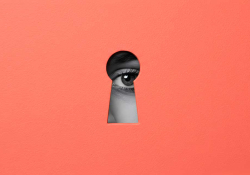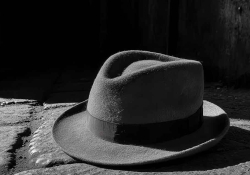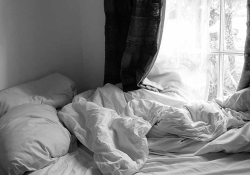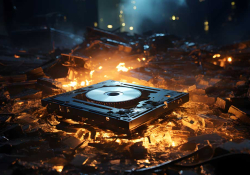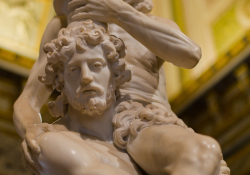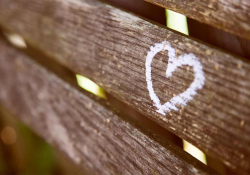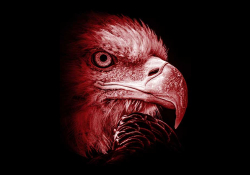Error message
Personal Identity Number (an excerpt)
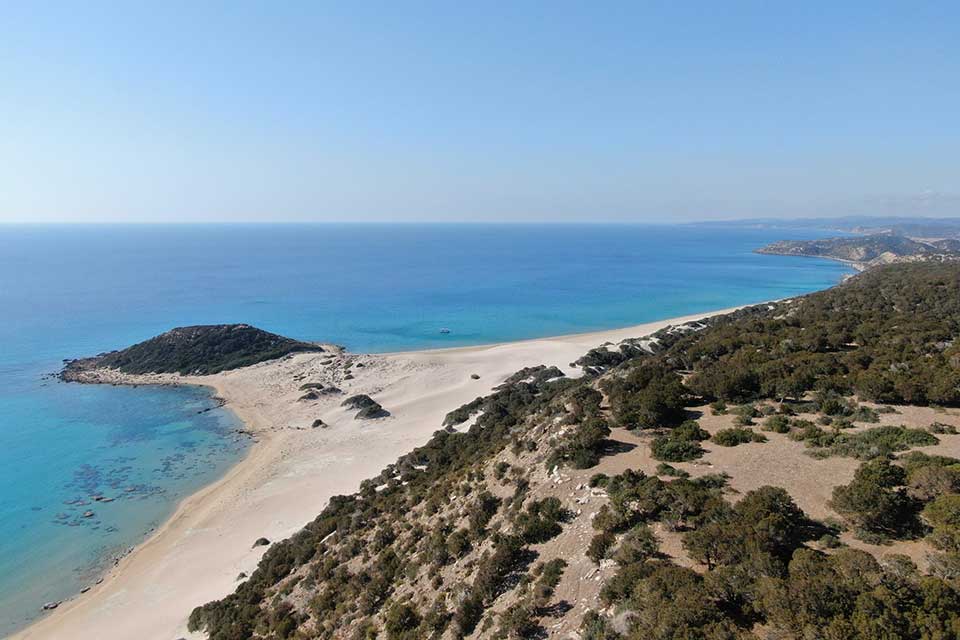
Personal Identity Number is a coming-of-age novel about a Macedonian-Cypriot girl in a dysfunctional family in post-Yugoslav and newly formed Macedonia. Seeking to understand her father, she travels from Skopje to Bristol, Varosha, and a dystopian wasteland. Personal Identity Number won Novel of the Year for best Macedonian novel for 2023, the most important prose prize in North Macedonia. This excerpt is from the beginning of the novel.
I should be more like my brother and not concern myself with anything about our family’s history, our father’s fate, or our mother’s character. I should accept everything as if it was normal and ordinary, not abnormal and bad. I should not feel sorry for the closeness I’ve never had. I should not look for reasons and justifications for my father’s silence, or for my mother’s commentaries. And I should not dig into their past. I should not be interested in why my mother went on seasonal work to Cyprus and there, in the hotel where she worked as a laundress and ironer, met my father, who was working as a custodian. He lived near the hotel, in the Varosha neighborhood. It was 1974, nine years before the area where he lived was declared the Turkish Federated State of Northern Cyprus, a year before my brother was born, and seven years before I was born.
As a young girl I wondered why I was born a full seven years after my brother, when all the other children in our neighborhood had brothers or sisters who were at most three years older or younger than they were. Later, I wondered how my parents could still be making love seven years after they married, given my father’s asthma attacks and all my mother’s headaches, leg pains, toothaches, stomachaches, dizzy spells, and hypochondriac illnesses. When I was a child, I’d often page through her health record booklet when she was at work, but I couldn’t find anything there but prescriptions for Lexilium and tea for hemorrhoids. My mother was healthy but thought she was sick. My father was just the opposite.
My mother was healthy but thought she was sick. My father was just the opposite.
My father never spoke about his background. When Cyprus would be mentioned on television, his face would contort, a deep crease would appear between his eyebrows, he’d silently swallow his saliva and wait for that news segment to end. We could hardly wait, too, and didn’t even let ourselves breathe. My mother would usually go into the kitchen muttering, “Yes, of course they’ll solve this situation, sure they will! With these people, not even God himself could figure it out!” but my father would already be on his feet, then turn off the television, muttering, “A man needs to find a wasteland!” then head to the bathroom, coughing. He’d leave the house. My brother would go into our room, but I would stay there in front of the turned-off television not knowing what to do with my arms, my legs, my mouth, my eyes. I could hear my mother in the kitchen saying: “They’ll deserve it if the Turks kill them, that’s what!” then I’d get up and go into my room. I’d climb onto my bed and reach for a book from the upper shelves. Pulling it down to the bed, I’d open it, skim a few sentences, turn the pages, skim something else, then put the book back on the shelf, pull down another, and stay there on my bed until my brother, who was kneeling on the floor with cassette tapes scattered around him, would shout: “Okay, now get down!” I’d get down, stumbling off the bed both because I was afraid of my brother’s orders—he was much bigger than I was—and because I knew that if the bed broke under my weight, I wouldn’t get another one. I dragged the atlas out from under my bed and opened it to the page between Greece and Turkey where there was a small dot of land bordered by the sea on all sides—Turkey to the north, Egypt to the south, Syria and Lebanon to the east, and, to the west, Crete. I could only see the line between the two parts of the island with a magnifying glass, which I also kept under the bed.
That year, 1974, on June 1, young women from Yugoslavia went to Cyprus to take seasonal jobs. The “Lasta” bus from Belgrade stopped at the station in Skopje to pick up my mother, her cousin Mara, and a few other girls, then continued on to Thessaloniki. From there they caught a boat to Crete, and then another to Famagusta. The Mediterranean shore awaited them with hotels like the ones you see in Hollywood movies. In the women’s magazines that Mara bought—Mara, with whom my mother lived for several years after she came from her village and got a job in a leather plant—it said that, as in other years, most likely that year as well, Elizabeth Taylor, Richard Burton, Brigitte Bardot, Paul Newman, and many other Hollywood stars would be visiting fashionable Famagusta on Cyprus. This was the year after the film The Battle of Sutjeska starring Richard Burton. Elizabeth Taylor had come with him to the Adriatic Island of Brioni, and there wasn’t a girl in Yugoslavia who didn’t feel close to her, felt that Elizabeth Taylor was all hers. At that same time, a youth cooperative in Belgrade organized summer work on Cyprus. The advertisement appeared in several newspapers throughout Yugoslavia, and many young women, rather than taking part in the youth action building the Belgrade–Bar highway, applied for jobs—chambermaids, ironers, laundresses, cooks—everything that was needed that hot summer in Famagusta. I always wondered how my mother found herself on that “Lasta” bus; if it hadn’t been for her cousin, most likely she would have never gone to Cyprus that summer. She wouldn’t have gone on the youth action either because she was expected in the village to reap, thresh, gather, and string tobacco. My grandfather considered this to be the only reason for taking an unpaid two-month leave from the leather plant. But Mara went to see my grandmother and told her personally that she wanted Milka to go with her to Cyprus, because they’d earn a lot of money there, and then Milka would be able to buy an apartment in Skopje, with, of course, credit from a bank as well. All my grandmother said to my mother was: “Take care that the old man doesn’t hear; tell him they’re not giving you vacation this summer.”
There wasn’t a girl in Yugoslavia who didn’t feel close to her, felt that Elizabeth Taylor was all hers.
She worked only briefly as a chambermaid in the hotel, then she became a laundress and an ironer. During the workday, she only left the basement to keep the other employees company during their communal lunch in the little room behind the kitchen. My father, Nikos, who worked in the hotel basement as a custodian in the mechanic shop, also ate there. They met the very first day, and several days later they were already a couple. That simply became understood after coffee spilled on her knees and she was screaming so loudly that he became frantic and instinctively grabbed the pitcher of water from the table and poured it over her knees. He helped her down to the basement, then ran over to her several times a day to see how she was. Of course, he did this with gestures, because my mother didn’t know English, just a few words of French. But that didn’t stop them from meeting every day—in the hallway, during their lunches, and after work, when they took walks along the sea before he headed home, a fifteen-minute walk from the hotel. My mother slept in the hotel, in the rooms provided for the workers, with Mara and a few of the other Yugoslav girls. Every afternoon they could sunbathe and swim at the beach, looking around to see if there were any film stars coming out of the sea or drinking a cocktail under a beach umbrella.
I was hiding behind my Macedonian textbook, barely breathing while listening to her, since that was the first time she had spoken about Cyprus.
I was in primary school when my mother told all this to a neighbor, after first sending my father off to buy cabbage at the wholesale market. I was hiding behind my Macedonian textbook, barely breathing while listening to her, since that was the first time she had spoken about Cyprus. She didn’t fail to mention that with her own eyes she had seen Elizabeth Taylor and Brigitte Bardot and Paul Newman and Richard Burton, the four members of ABBA, and Sophia Loren, who were all in Famagusta that summer. And she could not help adding: “They’re only good-looking on television, trust me! Up close they’re not, not Brigitte or Elizabeth Taylor, they’re just skin and bones, probably from drugs. You can imagine what they looked like, all powdered up on the beach!” “Are you serious?!” the neighbor said in amazement. “And Richard Burton? He was so handsome in Sutjeska.” “Oh, well, he and Paul are handsome, but the actresses, not at all! You should have just seen Sophia Loren, so sleazy!”
Many years later I did research into whether those stars really were there in Famagusta that summer of 1974. I concluded that they hadn’t been, most likely because the American secret service had warned Hollywood in time that something was about to happen on Cyprus. But my mother always believed in what she said, and we needed to believe it too. When she exaggerated and dreamt things up, when she didn’t know herself what she had said, what she had forgotten, and would then say something else, my father would just say: “A man needs to find a wasteland!” My father repeated this sentence whenever something wasn’t the way he thought it should be, when Stefan would cause trouble or when I’d do something he considered trouble, but most often it was when my mother would comment on things better left unspoken. When I was little, I didn’t know exactly what the word wasteland meant, and I thought maybe it was a cardboard box you could crawl into and hide from everyone, you could play inside it, you could sleep, look at its ceiling, and no one could do anything to you, the wasteland is your bell jar. Later I began to think more closely about that sentence, and I’d ask myself whether it really was a box, maybe it was really another word for some barren place like a desert. I knew about the Sahara from the atlas. But why would my father be talking about finding a desert? Why would someone go looking for a desert?
The wasteland is a small town two hundred kilometers east of Skopje, in which the economic transition closed the factories, and the inhabitants began to leave in droves and the town became one of the most abandoned in the country. Then, the several hundred citizens who remained could easily be convinced to resettle in Skopje, the promised land for all those in Macedonia who haven’t yet made up their minds to abandon it. Most of them like, or appear to like, the idea of this wasteland. Afterall, isn’t it best to find a wasteland without having to move? Even so, some of the older parents remained in that small town, people whose children had moved to Skopje or in search of a better future in Australia and New Zealand, or had settled in towns and villages in Italy, Germany, Sweden, and there were some families with at least one family member working in the municipal and state administration. The houses and buildings that had been built under socialism gazed empty, as did the factories that had produced vinegar, sponges, and whetstones. In the hospital, now hulking and empty, where earlier mothers, fathers, or grandfathers had taken their children by bicycle or donkey, where children from the surrounding villages had gotten their childhood vaccinations, and also needles for strep throat or rabies. Dogs have settled in at the spacious bus station, and the lock on the door to the hotel has already rusted. The buildings were collapsing but remained standing; here and there other building foundations stood that needed to be renovated, modernized, and filled again with new inhabitants who would then become the workers and consumers of all the town’s services. Because in this wasteland you can make something from nothing. There can’t be as much waste inside the wasteland as there can be outside it. That’s why people need to find a wasteland, right?
During the first invasion, on July 20, 1974, my father was at work. As usual, on that Saturday there was a wedding in the hotel restaurant. He was down in the basement workshop poking around the tools, ready to pick up the receiver in case anyone called from the reception to say that a guest had broken something in his room that needed fixing. My mother was suffocating in the laundry room, so she went out to the front of the hotel to get some fresh air and saw the wedding taking place between a British man and a Cyprian woman, who, she told the neighbor, was the fattest bride she’d ever seen in her life. Gunshots went off in the distance and the guests were panic-stricken; the music stopped abruptly. Everyone jumped up from their tables or stopped dancing the syrtaki and darted off, while some, likely the foreigners, rushed into the hotel, and others raced off in their cars or on their bicycles, even on foot if they lived nearby. My mother just turned and ran to the basement. All that remained in the restaurant and hotel lobby were the foreign guests; the bride and groom were gone. In movies I had seen a three-story wedding cake with chocolate figurines of the bride and the groom, and I imagined that in the hotel there was left standing on the waiter’s cart in the restaurant a cake decorated with flowers and ribbons, in a kitchen where the temperature was as cool as a refrigerator. That summer, like the previous ones, was hellishly hot, but the hotels of Famagusta likely already had the most up-to-date means for cooling the rooms. Famagusta was ahead of its time in 1974, but time in Famagusta was imprisoned in 1974, as they said once on television. My father had then turned off the TV and left, and I lost my only chance to see that famous city, the taboo-topic both of the Turkish invasion and of our family. But at that time when my father heard the rattling overhead, and ran to the laundry room, then up the stairs, he met my mother, who was, she said, completely faint. He told her not to go anywhere but to stay in the basement where she’d be most secure; he would go see how his family was and then he’d come back. My mother threw an absolute fit—couldn’t he see that she was about to vomit and that she might be pregnant, how could he leave her, someone could kill her. “Now you’ve decided to go see them?” she said to him, likely more with gestures than words, “You should have thought of that before, not now, when you see I’m about to throw up, and probably pregnant.” Yes, that is exactly what she said to him. “You know, I really lit into him, so he’d know that I hadn’t come from Macedonia for someone there to abuse me; his mother and father didn’t even consider me as human; when they first saw me, they insisted I was Greek,” she told her neighbor who listened and then asked: “What did you do to them that was so bad, Milka?” And my mother shouted back angrily: “They’re the ones who did bad things to me, I didn’t do anything to them! God knows, and Nikos never looked for them again.” While the other employees were racing to leave—everyone seeking the best way to get home to their families—my father most likely just stood there beside my mother not knowing what to do: should he get on his bicycle and head for home, or should he get a wet cloth and wipe my mother’s face to revive her. On the street he lived, it was most likely that everyone had fled, including his parents and his brother, whose thick glasses had kept him from being drafted into the army. My father was saved from the draft because of his asthma, and he had been able to get work in the hotel even though the unrest on the island was palpable and young men were being mobilized suddenly. He just stood there and coughed, not knowing what to do. “He chose me, of course!” my mother said to my neighbor, as I peeked out from behind my textbook, but she turned toward the stove where the coffee was heating and all I saw was the neighbor’s smirk. “Listen, they should thank me for bringing him here!” If the light had not gone on in the hallway at that moment, signaling that my father was back from the market, I might have found out exactly what happened, why she hated my father’s parents so much, or at least why they hated her. My mother called me to go get the shopping bags.
My mother threw an absolute fit—couldn’t he see that she was about to vomit and that she might be pregnant, how could he leave her, someone could kill her.
The whole city was on alert, but not everyone left. There were some who waited until the second invasion on August 14, when the Turkish army took Famagusta and the last inhabitants of Varosha fled helter-skelter. During those three weeks they had already raced off to nearby villages multiple times but then came back, and they thought they’d return this time, too. Varosha remained sealed behind the barbed-wire fence erected by the Turkish army. Three weeks before the barbed wire appeared, my mother and father, along with the last hotel guests, set off for the British air base in Dhekelia. There was a massive exodus of the last hotel guests. Likely by now my father could no longer get near his neighborhood, and who knows whether he still even wanted to. There were echoes of gunfire everywhere, and when my mother said to him, “You’re coming with me and that’s that!” he simply nodded. Where else could he go? His family had likely already left for somewhere in the south, and it seems that his pride didn’t permit him to go off and find his family since he hadn’t gone earlier to check whether they were well and accounted for, nor had they come to look for him at the hotel. That summer his family had been quarreling among themselves, and now, having met my mother, their relations with their son were apparently broken, something had come between them. He stuffed his wallet into the right pocket of his work uniform and, in the left, his passport, which he probably always carried with him on account of the inspections that took place in the hotels. Most important of all, he took his inhaler. A boat loaded with British families as well as the seasonal workers from Yugoslavia and my father set off from the base for Crete. Another boat took them from Crete to Thessaloniki. The “Lasta” bus arrived at the port in Thessaloniki, collected them, and set off for Skopje. Holding a bag for my mother in case she had to vomit, my father must have been asking himself why his family hadn’t looked for him when they saw he wasn’t there, why they only thought about themselves; now, filled with rage and anger, and most likely powerlessness, he got off at the bus station in Skopje with my mother. That is how I pictured their arrival. In their unspoken misunderstandings, my father and his family lost each other. His parents and his brother could not have known that he’d left for Macedonia; they would have thought he’d found shelter at the home of someone from work and that he planned to look for them after the danger had passed. Or maybe they were too angry that he had gone off with my mother. Maybe something burst inside them, and they felt abandoned and deceived, thinking he had thought only about himself and had forgotten them in the most difficult moments in the life of the family and their country. So, they silently gave up on him, wiped him from their mouths and their tongues.
So, they silently gave up on him, wiped him from their mouths and their tongues.
Yes, those were times for escape alone, figuring out how to save your own skin, but like this? Or is it the case that in war, the individual triumphs over the societal? Neither side ever heard spoken aloud what the other was thinking, and apparently neither his parents nor his brother ever forgave him for leaving without saying a word. According to my mother’s curses and those few sentences she told our neighbor, something seems to have broken between them at that first meeting, and the rift between them only deepened at subsequent meetings. As far as I know, my father never looked for them, neither through international networks nor on his own. This was incomprehensible to me until I grew up enough to understand that this is how my father was—closed, gloomy, wrapped in silence—but also that behind that silence was something hidden that only he and my mother knew. Or maybe it was because of his shame that he hadn’t looked for them and gone with them but instead set off with my mother and didn’t try to find them later? Or was it because they didn’t try to find him themselves and to give way and accept my mother? Because of that misunderstanding, my father completely lost his home and his family, perhaps hoping that his new family, the one he created with my mother, would replace the old one and take the place of his closest relations, displace them in his memories. Was the fact that he was deceiving himself most evident in the trembling of his hands, which had begun to shake even when I was a child and his cough, which echoed at night in our apartment, and, later, by his lungs, where for decades he had stored not only his asthmatic symptoms but also his silent rage and bile rather than in his liver? And all those words, unspoken in any language, intended for others, but also for himself. “A man needs to find a wasteland!” he would mutter and leave the apartment. I would go out on the balcony to see where he was going. He would always go down to the garage, never anywhere else. At that time, I thought he was going there to find his wasteland. But what sort of wasteland could there be in a garage?
Later, when I asked my teacher what a wasteland was, she asked me: In what context? A wasteland can be a deserted place, but it depends on how you want to use it, on the context. “A man needs to find a wasteland” I mumbled, and the other children began to laugh. Hushing them, my teacher said: “Katerina has brought up a very interesting example of a metaphor. When you get older you will understand that some sentences we hear or which we speak ourselves can’t be understood literally, but only in a transferred meaning. ‘A man needs to find a wasteland!’ means for a person to escape somewhere, to go far away, who-knows-where, to save himself from something, or some problem. But you need to know that a wasteland is also a place with no spiritual content, where nothing happens. As Siljan the Stork would say. We talked about him in our last class, how Siljan was so lazy and wandered the earth far from his family and reached a land where he was turned into a stork. In a wasteland it can be so barren that no bird sings and no dog barks. In a wasteland, there are no people, or very few; it is truly an empty place, and that’s why it is called a wasteland, an empty place like a desert. Still, in your example, the idea isn’t a place like the Sahara—there is no wasteland on a map.” I could barely digest my teacher’s words because the classroom was noisy and I didn’t understand exactly what she was saying. Some of the other kids kept repeating in made-up voices, “A man needs to find a wasteland! A man needs to find a wasteland!” and when the teacher finally asked me where I had heard that expression, my cheeks were already burning with embarrassment. “On television,” I stammered.
The wasteland is a commune of alienated people who live together only geographically, a town of asocial individuals in which alienation from everything is most important in all its manifestations. In fact, on a global level there is already such a separate society, the world—a community mostly of individualists who are becoming increasingly numerous. This is connected to numerous external factors: neoliberalism in which at least half the world is drowning, the competitive spirit that is encouraged from the earliest ages; when children still in kindergarten get points and prizes for this and that, the competition is both on an individual and on a collective level. But the world is still too broad a concept, and such a wasteland loses its meaning in this framework. The wasteland is an individual space, for each separate person. The emphasis is on the alienation between people, on solitude and independence, individuality and self-sustainability, with no relationships to others with whom ties are greatly reduced and become simply transactional.
Translation from the Macedonian
Recent Posts



